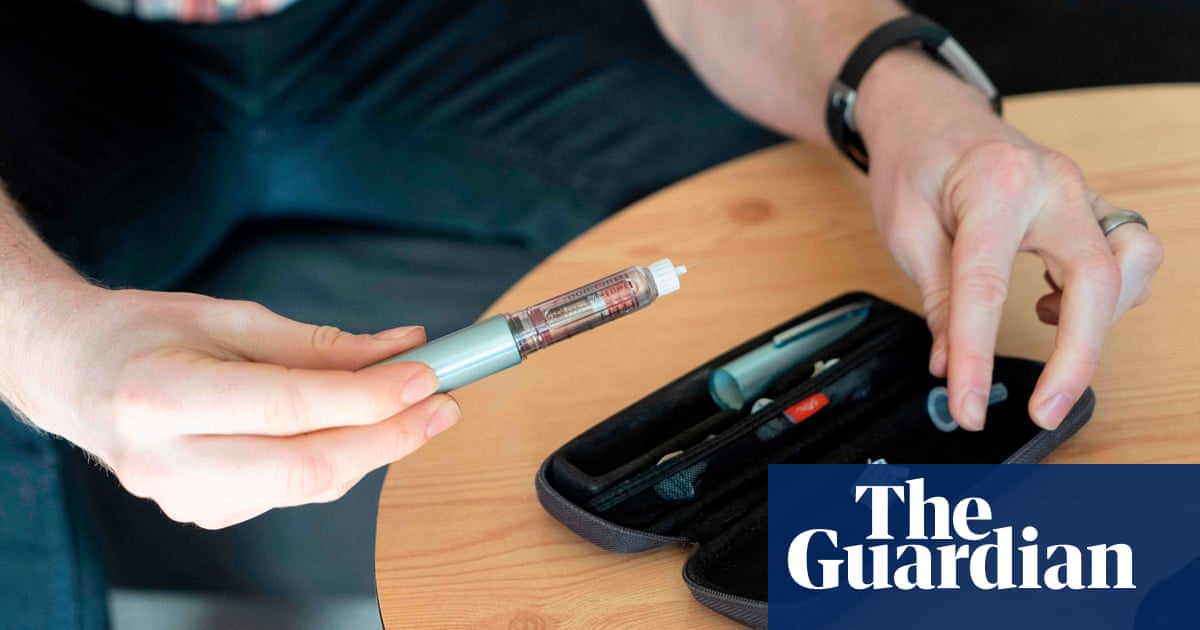Scientists have developed a “holy grail” insulin that responds to changes in blood sugar levels in real time, potentially revolutionizing the treatment of millions of people with type 1 diabetes around the world.
Patients currently have to administer synthetic insulin to themselves up to 10 times a day to survive. Constantly fluctuating between high and low blood sugar levels can cause short- and long-term physical health problems, and the struggle to keep blood sugar levels stable can also have a negative impact on your mental health. may have an impact.
Scientists have discovered a solution that, according to experts, is as close to curing type 1 diabetes as drug therapy is possible. It's smart insulin that sits dormant in your body and only kicks in when you need it. Researchers in the United States, Australia and China have successfully designed a new insulin that mimics the body's natural response to changes in blood sugar levels and responds instantly in real time.
Standard insulin stabilizes blood sugar levels once it enters the body, but once it has done its job, it is usually unable to deal with subsequent fluctuations in blood sugar levels. This means patients often need another injection of more insulin within just a few hours.
The new glucose-responsive insulin (GRI) is activated only when a certain amount of sugar is present in the blood, preventing hyperglycemia (hyperglycemia). When the level falls below a certain point, they become inactive again, avoiding hypoglycemia (hypoglycemia). In the future, experts believe patients may only need insulin once a week.
Scientists behind smart insulin have received a multi-million pound grant to fast-track its development. The funding is provided by the Type 1 Diabetes Grand Challenge, a partnership between Diabetes UK, JDRF and the Steve Morgan Foundation. The company is investing £50 million in cutting-edge research to find new treatments for type 1 diabetes.
Dr. Tim Heise, vice chair of the Type 1 Diabetes Grand Challenge's Emerging Insulin Scientific Advisory Committee, said smart insulin could usher in a new era in the fight against diabetes. “Even with the most advanced insulin currently available, people living with type 1 diabetes struggle to find the right balance between acceptable glycemic control on the one hand and avoidance of hypoglycemia on the other. , you have to put in a lot of effort every day to manage your diabetes.
“Glucose-responsive, so-called smart insulin is considered the holy grail of insulin because it comes much closer to treating type 1 diabetes than any other drug therapy.”
Almost £3 million has been awarded to six research projects that have developed different types of smart insulin. These include teams from Stanford University in the US, Monash University in Australia and Zhejiang University in China. The aim is to accelerate development and begin testing as soon as possible.
Each project aims to fine-tune smart insulin to work faster and more accurately, relieving some or all of the heavy burden of type 1 diabetes management and reducing the risk of long-term complications. I'm here. Four of the projects focus solely on testing the GRI.
A fifth person has developed a new ultrafast-acting, short-acting insulin. Even with the fastest insulin currently available, it still takes some time after the drug is administered before it begins to affect glucose in the blood. This can cause blood sugar levels to rise to dangerous levels before insulin can act to lower them.
Faster insulin is also needed to improve the functionality of insulin pumps and hybrid closed-loop technologies (systems that rely on stored insulin to respond in real time to changes in blood sugar levels).
The sixth project focuses on a protein that binds insulin and another hormone, glucagon. Unlike insulin, which helps remove glucose from the blood, glucagon stimulates the liver to release more glucose when blood levels are low. When both hormones are included in one preparation, they work to prevent high and low blood sugar levels and help keep blood sugar levels stable.
“The six new research projects funded address major shortcomings of insulin therapy,” Heise said. “Thus, if these research projects are successful, they may just herald a new era in insulin therapy.”
Rachel Connor, Director of Research Partnerships at JDRF UK, said: “Insulin has been saving lives for over 100 years and research to date has made a significant difference for people with type 1, but it is still important to manage blood sugar levels. It's still not enough in that respect.” Using insulin is a real challenge, and it's time for science to find ways to ease that burden.
“By imagining a world where insulin could respond in real time to changes in blood sugar levels, these six projects can help create that new reality and address the relentless demands placed on people with Type 1 to live with this condition today. I hope that you will be freed from it.”
Dr Elizabeth Robertson, head of research at Diabetes UK, said these projects had the potential to revolutionize the treatment of type 1 diabetes. “By supporting these groundbreaking research projects, we aim to develop new insulins that more closely mimic the body's natural response to changes in blood sugar levels.
“This could significantly reduce the daily challenges of managing type 1 diabetes and improve both the physical and mental health of people living with this disease. We hope this research will lead to life-changing advances in the treatment of type 1 diabetes.”
